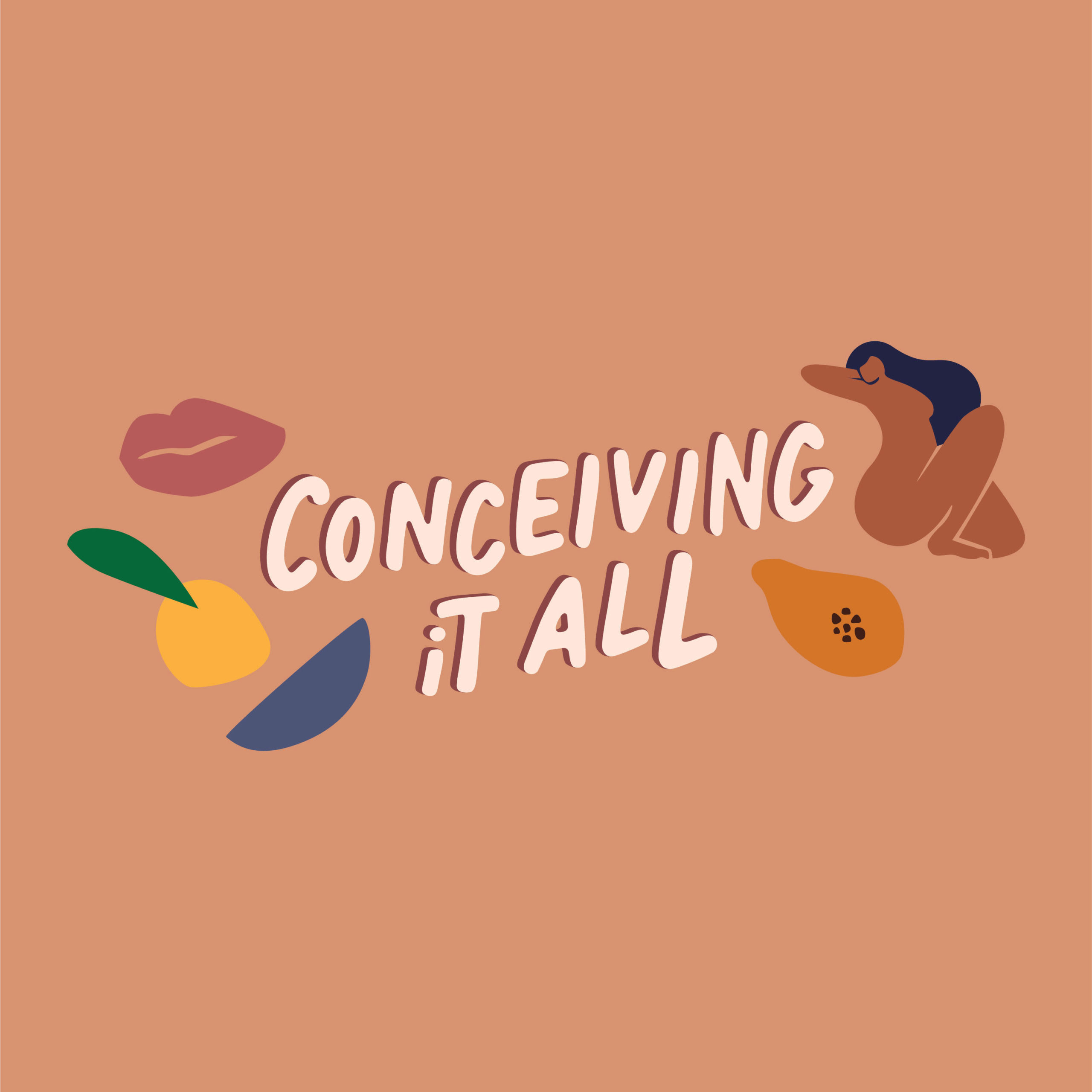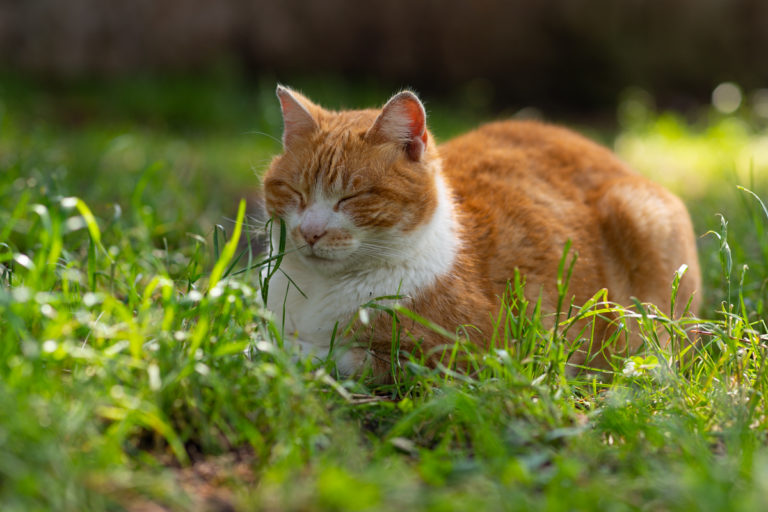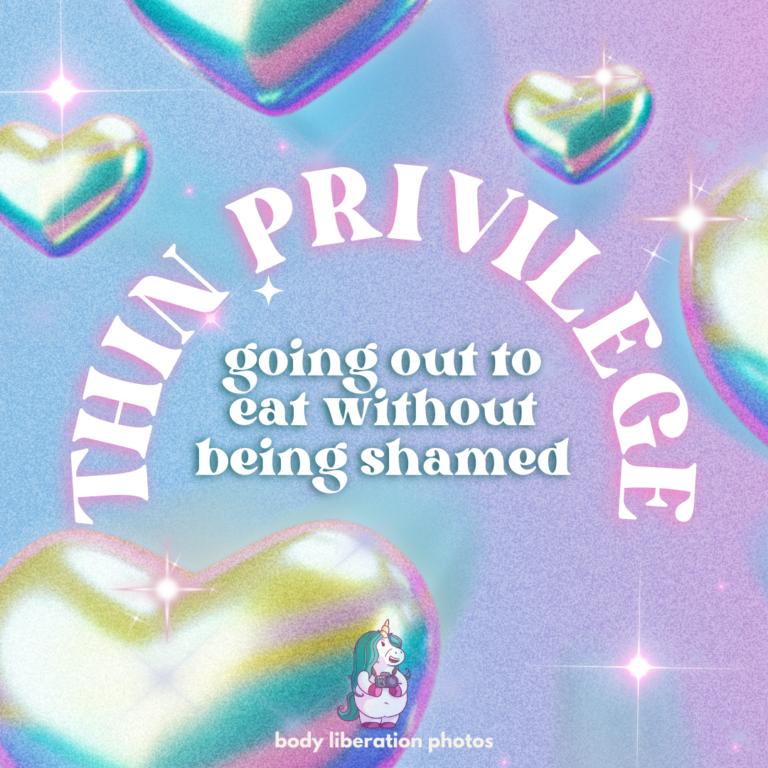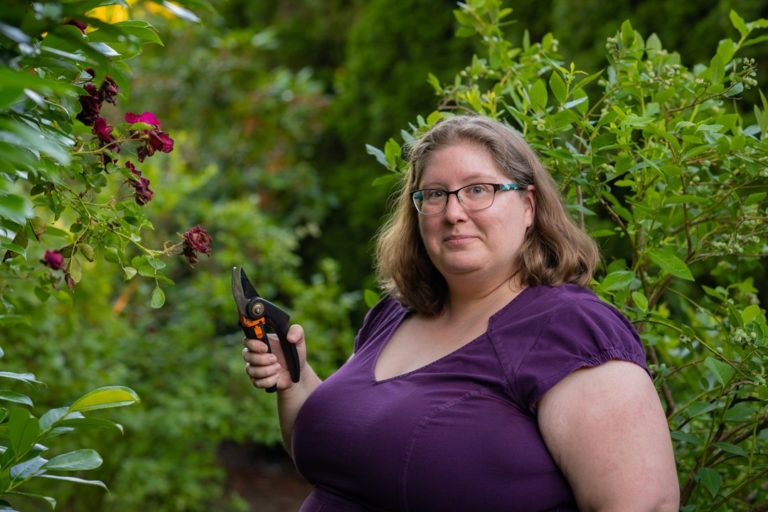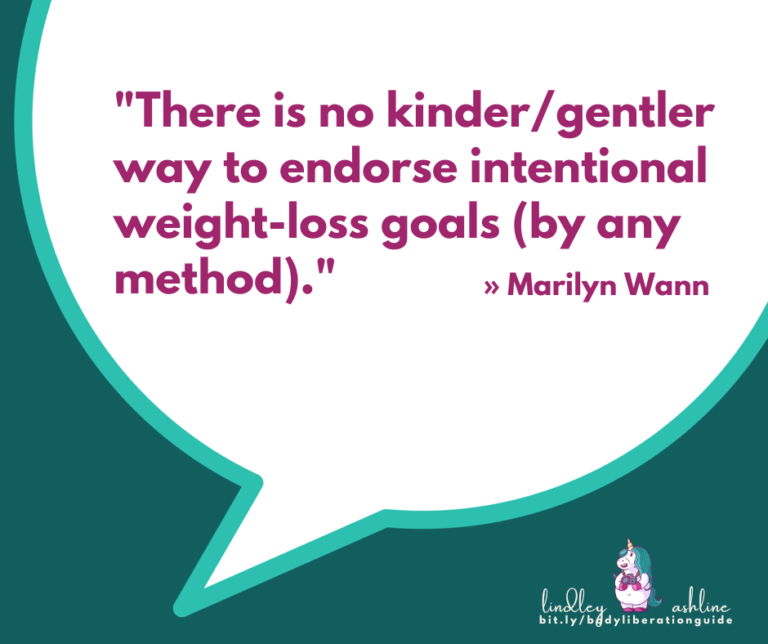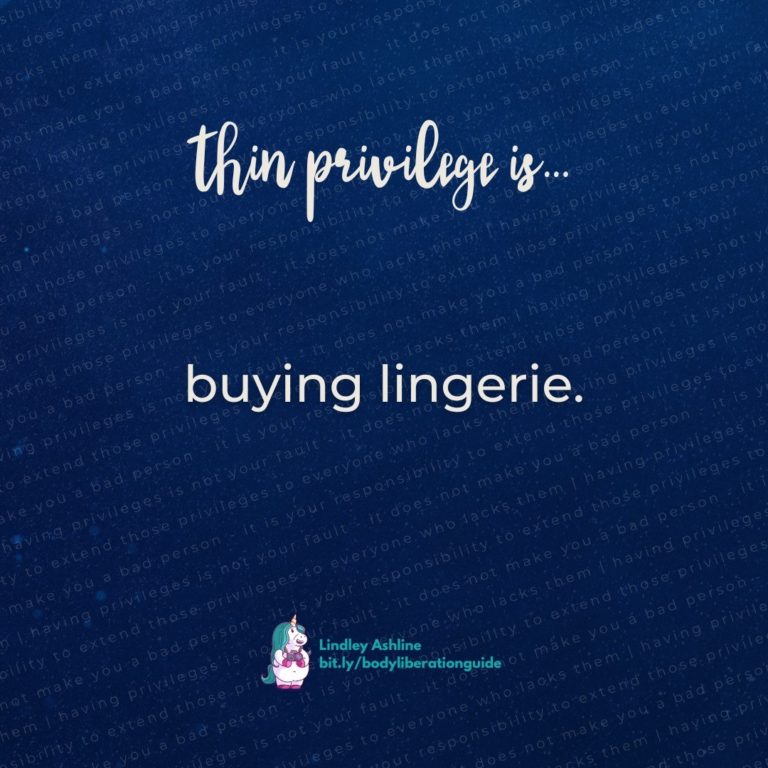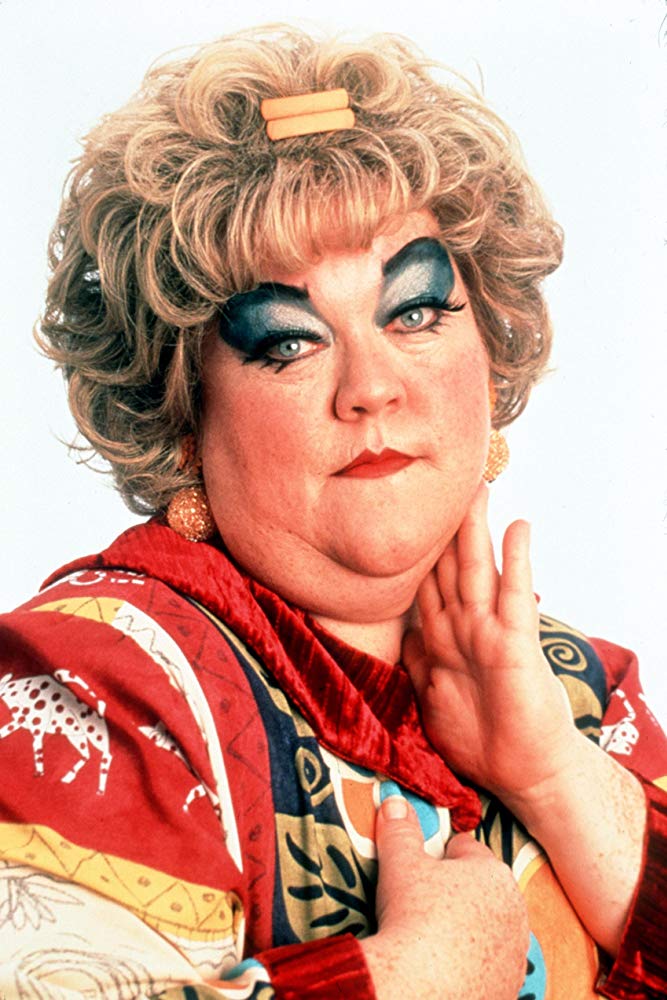{Listen} If there’s a war on ob*sity it’s a war on me: Conceiving It All with Georgie Owen
I don’t generally think of myself as what I call a “101-level educator.”
That’s the kind of person whose talent is bringing people who are brand new to a concept gradually through it.
To be honest, I don’t have the patience or emotional energy to gently and patiently convince people that fat people are both actual humans and equally worthy of dignity. My work is generally meant for people who get it to a certain extent, and are ready to grow in their understanding and challenge their internal biases.
Whenever I do have a reason to do 101 educational work, it’s a good reminder that there are so many people out there who need that initial lesson, especially the professional fields whose members directly hold power over their fat patients, clients, students and others.
Georgie Owen interviewed me for her podcast, Conceiving it All, and we returned to the basics, from the racist origins of weight stigma to how to describe people in fat bodies when you have good reasons not to use the word “fat.”
Georgie helpfully broke down each section of our discussion, too, so that you can get the gist or skip directly to the part you’re most interested in.
0 – 3.50: intro and Lindley’s dinner and favourite food memory.
3.50 – 6.45: how Lindley came to have the voice she has today as a photographer and fat liberation activist. The more Lindley learned about how bodies work, the more it became apparent that treatment of people in larger bodies is unfair.
6.45 – 16.30: Lindley unpacks the systems of power around us and explains how beauty standards and weight stigma exist because of racism and sexism. Dr Sabrina Strings’ book ‘Fearing the black body’ traces how fatphobia and weight stigma came out of racism. This is why it is so pervasive and hard to rule out.
16.30 – 29.00: Lindley discusses the evolution of her activism including the language that we use to describe people in larger bodies. She recommends the term ‘people in larger bodies’ and discusses how the words ‘obesity and overweight’ are stigmatising medical terms, saying ‘if there is a war on obesity, that is a war on me’. For discussion about weight and health, Lindley refers to the book ‘Body Respect’ by Lindo Bacon and Lucy Aphramor. A caveat here is that we’re not saying there aren’t lifestyle factors that can lead to weight loss if people want to pursue this. We are discussing, as lay people not experts, what we’ve learned about how challenging weight loss is. This is important given that society still holds fatphobic views about weight loss simply being about ‘eating less and moving more’. ‘What Does Australia Really Think About Obesity’ is a wonderful expert filled SBS program which further unpacks these societal beliefs.
29.00 – 31.00: The 3 key 3 messages of Lindley’s activism. 1 – every human body is equally worthy of dignity, respect, opportunity and good treatment. 2 – we’re all navigating really deep seated systems of power so the more we are aware of the systems in which we live, the more we can make choices about how we conduct our lives and how we treat ourselves and other people. 3 – fat bodies are not inherently gross.
31.00 – 51.30: Movements to improve body image, participated in predominantly by people with thin privilege, are not the same as doing the work to reduce weight based oppression. It is positive to push against unrealistic beauty standards. However, all types of bodies can have body image issues but not all types of bodies are stigmatised, discriminated against and oppressed in the way that people in larger bodies are. Thin privilege as a spectrum. Lindley discusses how people, predominantly thin white women, have taken concepts from the fat activism movement and watered them down so that we are now better at normalising bodies that don’t look like bodies in magazines but bodies that are socially accepted anyway due to their privilege…but the people who built this movement, and who may still be oppressed due to the body they live in, are not benefitting. This is not just about people ‘not liking’ their bodies (which is also not fair and is also a result of all these structures we discuss) but about people who are oppressed in their bodies.
51.30 – end: Centring and focusing on people in the most marginalised bodies helps everybody. We discuss what would be preferable to see from creators who are genuinely so well intentioned but who may be ‘thin washing’, ‘white washing’ or centring themselves. The answer is allyship and this includes doing the homework, paying for the emotional labour which goes into activism and which we learn from, doing more than liking and sharing content (ie leaving meaningful comments so that the algorithm picks it up), generally using privilege and connections to help and monitoring how we speak about our own bodies.
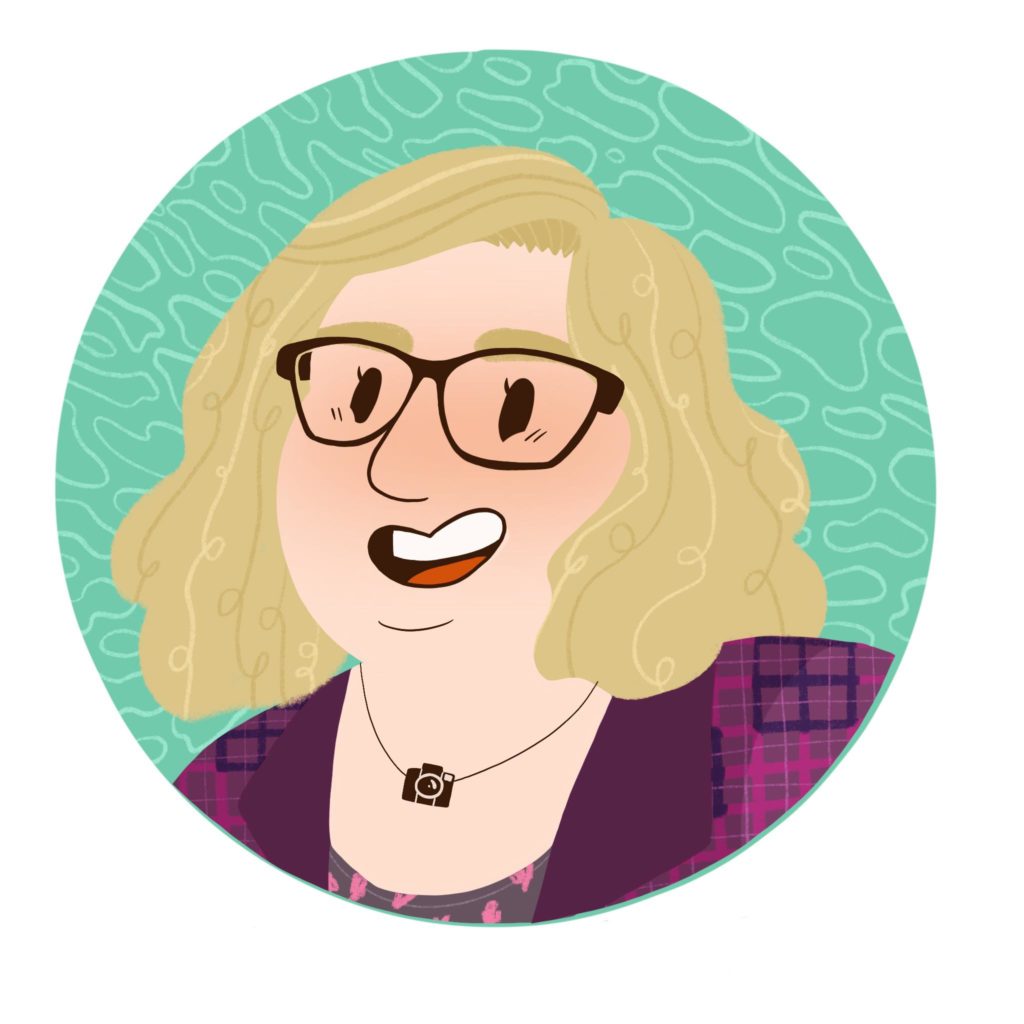
Every Monday, I send out my Body Liberation Guide, a thoughtful email jam-packed with resources on body liberation, weight stigma, body image and more. And it’s free. Let’s change the world together.
Hi there! I'm Lindley. I create artwork that celebrates the unique beauty of bodies that fall outside conventional "beauty" standards at Body Liberation Photography. I'm also the creator of Body Liberation Stock and the Body Love Shop, a curated central resource for body-friendly artwork and products. Find all my work here at bodyliberationphotos.com.

